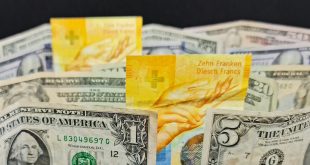Dubai TV interviewed Mohammed Hashad, Director of Research and Development at Noor Capital and member of the US Association of Technical Analysts, to comment on the most important developments in financial markets in the previous week.
US Debt Ceiling Deal
Hashad began commenting on the breakthrough of the US debt ceiling crisis. Asked whether the deal concluded by the Republicans and Democrats means taking a decision that merely serves the upcoming US elections or that it serves the global economy and makes it breathe a sigh of relief in light of the fact that it is in any case a temporary decision, Hashad replied: “Indeed, the debt ceiling was eventually raised after long negotiations that lasted for weeks. US President Joe Biden signed the bill that was recently approved by Congress, and I believe that Joe Biden and Kevin McCarthy saved the United States of America in the last moments before debt or defaulting. In any case, the agreement on the debt ceiling means good news for the US elections, as it will save the White House from entering into negotiations regarding the debt ceiling until the 2024 elections, and it is also a good decision on all levels, for the United States, the deal prevented it from entering an economic spiral that would have included high unemployment rates, in addition to a decline in confidence in the US dollar and a decline in confidence in the US economy, but I believe that things are now in the right place, and this is very obvious from following the performance of important financial assets in the oil and US stock markets, we witnessed how Wall Street celebrated the deal to raise the debt ceiling after several days of negotiations”.
Recession Fears
Asked whether he supports the statements by the head of Bank of America when he described the economic recession in the United States as “moderate” according to its suitability with current levels of inflation and also the path of tightening monetary policy, Hashad replied: “Yes, we can say that there is a batch of positive data that has been lately released in the United States despite the continued rise in inflation; perhaps the most recent of which is the US jobs data, NFP, and the US economy succeeded in adding 339,000 jobs last May, and this provides positive evidence, as the largest number of employment recorded in four months.
Hashad added, “I believe that the US economy is still in a stage of moderate recession and all economic data is positive, whether retail sales or even consumer spending, but the Federal Reserve is targeting the reduction of inflation to 2%, even if the data is positive and even if the labour market is strong. It will of course affect interest rates in some way at the next monetary policy meeting.”
Gold Price Outlook
Commenting on interest rates, and in response to a question about whether the US Central Bank will resort to fixing interest rates at the next meeting and thus what will be its impact on the levels of gold price movements, Hashad replied: “The main idea is that the markets have begun to feel that the Federal Reserve will fix interest during Its upcoming meeting this month, but in general I believe that the Federal Reserve continues to tighten monetary policy, as we are still far from the target inflation levels at 2%, and this of course will have a negative impact on gold prices”.
Oil Prices
Asked about oil prices and the support prices received from more than one side, and whether those levels will be satisfactory for OPEC + until the next meeting; Hashad indicated that oil “made strong gains, and the evidence is that at the beginning of the trading week, it opened on an upward price gap and began attacking the level of $75 per barrel for American crude. Indeed, oil benefited greatly from the breakthrough of the debt ceiling crisis, given that the United States is the largest energy consumer in the world. It also benefited greatly from the US jobs data, which came in a positive manner that exceeded expectations and boosted the demand for crude oil, especially with the approaching summer holidays, travel and driving season”.
He added: “I believe that the satisfactory levels for a barrel of oil would have been between 70 to 80 dollars during the coming period, especially with the continued commitment of the Kingdom of Saudi Arabia, the largest oil exporter, in the world to the plan to voluntarily reduce by one million barrels per day, as of July, and this will be noticed in effect in the form of oil output reduction from Saudi Arabia from 10,000,000 barrels to 9,000,000 barrels.
Finally, about the most important expected economic data this week and Christine Lagarde’s speech today, Hashad has said: “I believe that the economic agenda for this week is not as crowded as it was last week. As for Lagarde’s speech, I expect her to focus on inflation levels and the performance of the banking sector, and this week we are waiting also for the US ISM Index “services”, and in Canada we await the decisions of the Central Bank, BoC, on interest rates and employment levels.
Back to Lagarde; Hashad indicated that the ECB President will speak generally about inflation levels, which are still far from target.
Home / Market Update / Commodities / Noor Capital | Interview with Mohammed Hashad on Dubai TV – June 5, 2023
Tags biden BoC Christine Lagarde debt ceiling debt ceiling bill employment FED inflation NFP Data Noor Capital Oil Prices OPEC+ Saudi Arabia
Check Also
USD/CHF Holds Steady Amid Trade Tensions and Soft Swiss Data
The USD/CHF currency pair struggled for clear direction on Monday as fresh uncertainties surrounding US …
 Noor Trends News, Technical Analysis, Educational Tools and Recommendations
Noor Trends News, Technical Analysis, Educational Tools and Recommendations




